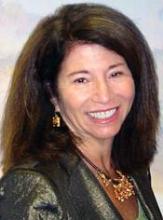So taboo it merits barely a whisper in the literature, the subject of eating disorders among American medical students, residents, and physicians often hides behind a cloak of anonymity on virtual bulletin boards. One such posting:
Does anybody have any experience with dealing with an eating disorder and being in med school? I’ve recently been told I’m no longer able to participate in clinical work (i’m in 3rd year) because my doctor contacted the school in regards to my health. I’m not underweight and my electrolyte balance is normal. I’m just looking for anybody who has been in a similar situation or anybody who might have any advice or support – it’s been a tough little while. ... I’ve made many positive changes, stopped abusing phentermine and ephedra, stopped overexercising, but apparently it hasn’t been enough.
Physicians seek treatment for eating disorders from individual physicians and eating disorders programs, but often only after taking desperate measures to control the disorder themselves, taking advantage of knowledge and medical insight beyond the reach of even the most well-read consumer seeking an out.
"Of course, there is a lot of individual-to-individual variation, but if I compile all of my experience, I would say physicians are more resistant than others to recognize and come to terms with the idea that they have a serious problem and they need help," said Dr. Ovidio Bermudez, chief medical officer of the Eating Recovery Center in Denver and past president of the National Eating Disorders Association.
A genetic predisposition to eating disorders likely occurs no more frequently in the families of medical professionals than in any other, but certainly the environment that nourishes young doctors contains abundant seeds for triggering the disorder, according to eating disorders specialists.
"I think it is more rampant than people know. These are high achievers, and the pressure is on," said Dr. Vicki Berkus, medical director of the eating disorders program at Sierra Tucson Treatment Center in Arizona.
Medical school and residency training are particularly challenging for those at risk, combining competition, stress, and wildly erratic schedules for eating, sleeping, and self care, agreed Dr. Jennifer L. Gaudiani, assistant medical director the ACUTE Center for Eating Disorders at Denver Health.
"Temperamental traits such as perfectionism, rigidity, and anxiety can be very useful in the pursuit of a medical career," Dr. Gaudiani said in a telephone interview. "A lot of us share them and have done very well by them."
But against the backdrop of a fat-phobic, diet-obsessed culture and those hard-driving personality traits, the uniquely stressful professional demands that are inherent in medical training and beyond may unmask disordered eating or sharply accelerate patterns left over from adolescence.
"Whoosh," said Dr. Gaudiani. "It’s a bonfire."
Secrecy complicates the issue and often adds fuel to the disorder.
"Doctors can be an unusually unsympathetic group when it comes to colleagues’ illnesses of any kind," she noted.
Underpaid, overworked residents are virtual poster children for compassion fatigue, notoriously tough on "colleagues not able to pull their weight," said Dr. Gaudiani.
So most residents with the disorder hide the problem as do many physicians in practice.
"Depending on the severity, it’s harder to hide anorexia," said Dr. Berkus, past president of the International Association of Eating Disorders Professionals.
Compulsive overeating and purging and/or laxative use can be concealed for some time, she added. Compulsive exercise can be seen as not only socially acceptable but also admirable, especially among professional men.
In lecturing to medical school classes about their risk for eating disorders, however, Dr. Berkus said, "It’s not unusual to see people tearing up, and two or three people will come up afterward to find out where they can get help.
"It takes so much energy to keep the secret."
Some medical professionals plaintively, but anonymously, appeal for advice on such websites as Student Doctor Network.
I have binge eating disorder and been in medical school for a year and a half. I’ve been in recovery for a while, but sometimes I have setbacks and become a whole different person. There’s a lot of unconciousness about eating disorders, I mean, as medical students, we all know what they are all about, but we don’t even take them as serious as we should. Eating disorders are illnesses just like diabetes and cancer and there’s no cure, just treatments to control them. I just want to know if there’s the experience of dealing with an eating disorder (the depression, lack of concentration, and neurosis that are involved) and the stress, lack of sleep, and amount of work that involves medical school. Although this is serious, I know several attendings and professors that don’t really care about it, so is it correct to mention it [in residency] interviews?

